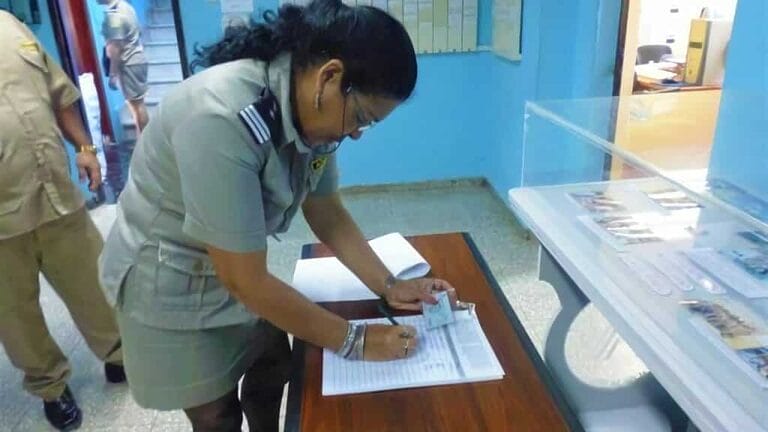The General Customs of the Republic of Cuba applies to passengers who violate the provisions of current legislation two main types of administrative sanctions: confiscation and fines.
These two sanctions are imposed by Customs regardless of the criminal liability a passenger may incur when transporting goods to and from Cuba.
Of these two sanctions imposed by the customs authority, the most common one involves the confiscation of goods for violating established limits regarding the total value of the import, quantities of the same type of items, or for attempting to import and export goods that are prohibited or subject to regulations.
In the case of the fine, it is a penalty that Customs applies exceptionally to passengers who obstruct or resist the authority's control.
The above is established in Decree 277 of 2005, in its article 6.27.
It is worth noting that the fines imposed by Customs on passengers are always set at a value of 500 pesos.
The type of currency in which the fine is imposed depends on the passenger's immigration classification.
Therefore, passengers residing in Cuba pay the fine in local currency in all cases. Meanwhile, passengers who do not reside in Cuba, both Cubans and foreigners, pay the 500 peso fine in convertible Cuban pesos.
In the case of passengers residing in Cuba who have been fined by the customs authority, they have a period of 15 calendar days to pay the fine at designated areas (CADECA cashiers located within the Customs hall of the airport).
For their part, non-resident Cuban passengers and foreign passengers who have been fined only have 72 hours from the time they are notified of the penalty to make the payment. They must also do so in the designated areas (CADECA cashiers located within the Customs hall of the airport).
In all cases, when the passenger does not pay the fine within the granted period, the amount to be paid for this reason is doubled.
If the passenger still refuses to pay the fine, they become a debtor to the Cuban State, and the Cuban Customs has a legal period of 5 years to take control actions over the debtor passenger to ensure that the amount of the fine (which has already doubled) is reimbursed to the national treasury.
To a passenger listed in the Cuban Customs database as a debtor to the State, each time they enter the country, the customs authority withdraws all the privileges granted to other passengers.
By excellence, a passenger with pending debts with Customs can never take the Green Channel for passengers.
Also consult: Why does everyone want to go through the Green Channel at the Cuban Customs
In all cases, Customs will instruct you to take the Red Channel, will conduct a thorough physical check of your luggage, and if the passenger is carrying goods for import, they may even be appraised (in the case of miscellaneous items) through the internal valuation list, not by weighing. This means that the passenger can be charged for each piece of their luggage separately, including clothing, footwear, and other items they are carrying.
We suggest consulting: What is the Red Channel at Customs? How to avoid it?
Continue reading in Directory News
Follow our channels of WhatsApp, Telegram y Facebook.
